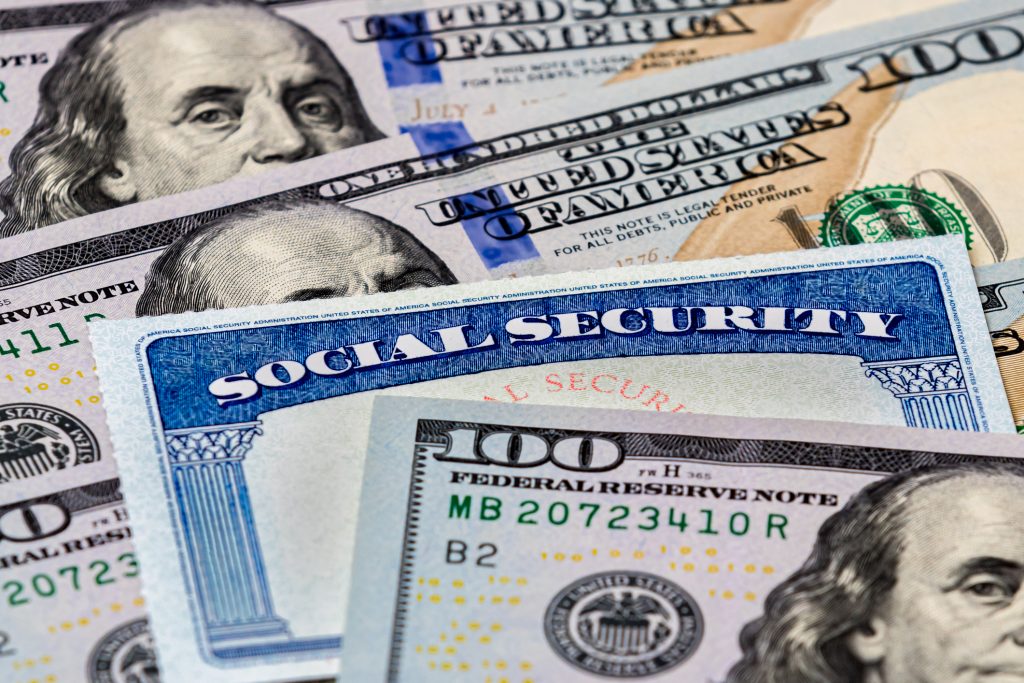Holy moly! Here’s some shocking news: According to a report released last year from the Morningstar Center for Retirement & Policy Studies, nearly half — 45% — of Americans who retire at age 65 will run out of money. That’s a rather terrifying scenario.
Don’t panic yet, though. Read on to learn just what the report said and what steps you might take to not end up among that 45%.
Start Your Mornings Smarter! Wake up with Breakfast news in your inbox every market day. Sign Up For Free »

Image source: Getty Images.
The report said…
The folks at Morningstar used a simulation tool to evaluate lots of retirement scenarios to see how long savings might last. They incorporated factors such as expected longevity, age, savings, and gender and found that:
- About 45% of Americans who retire at age 65 stand a good chance of running out of money before they run out of breath.
- The numbers were worse for single women, with 55% expected to run out of money.
- The numbers were better for couples and single men, at 41% and 40%, respectively.
If people keep earning income until age 70, the numbers get much better:
- Overall, only 28% will run out of money. (That’s still more than 1 in 4, though, so it’s still a worrisome figure.)
- For single females, 36% will run out of funds, while 26% of couples and 21% of single males will do so.
Fully 54% of those retiring at age 62, meanwhile, are likely to run out of money.
A few last things to note: Those working in public-sector jobs with some sort of pension are less likely to run out of money if they retire at age 65 — 29% of them are projected to do so.
What to do…
Based on the findings above, some conclusions are clear:
- To reduce your chance of running out of money, aim to delay retiring, perhaps until age 70.
- Save as much as you can while you’re working.
To that, I’ll add some more suggestions:
Invest effectively
It’s not enough to just save a lot of money. You’ll also need to invest it effectively. Understand that the S&P 500 has averaged annual returns close to 10% (ignoring inflation) over long periods. So, it’s reasonable to conservatively hope for average annual gains of 8% (though, you might end up with higher or lower returns, of course). Here’s how your money might grow at 8%:
|
Growing at 8% for |
$7,500 invested annually |
$15,000 invested annually |
|---|---|---|
|
5 years |
$47,519 |
$95,039 |
|
10 years |
$117,341 |
$234,682 |
|
15 years |
$219,932 |
$439,864 |
|
20 years |
$370,672 |
$741,344 |
|
25 years |
$592,158 |
$1,184,316 |
|
30 years |
$917,594 |
$1,835,188 |
|
35 years |
$1,395,766 |
$2,791,532 |
|
40 years |
$2,098,358 |
$4,196,716 |
Source: Calculations by author.
The table shows how powerful it is to let your money compound for as long as you can.
Plan for steep healthcare costs
It’s no secret that healthcare is costly these days, so it’s vital to account for that in your retirement plan. Take some time to read up on and learn about ways to keep healthcare costs in check, too, which includes making savvy Medicare decisions. Simply getting and staying in shape can help many people minimize their need for healthcare.
Make good use of retirement accounts
If you don’t have a pension coming to you, and even if you do, aim to make good use of tax-advantaged retirement accounts, such as IRAs and 401(k)s. Each comes in two main varieties — traditional and Roth. A traditional account receives pre-tax contributions and shrinks your taxable income by the amount of your contribution. A Roth account accepts post-tax money, and if you play by the rules, all your withdrawals in retirement can be tax-free.
Re-imagine your retirement
If you’ve been counting down the days until you retire at, say, age 62, rethink that. Such an early retirement may work well for lots of people, but it won’t work for everyone. Crunch your own numbers to see whether your savings are really enough to carry you through potentially 30 years of retirement — or more.
If you were planning to start collecting Social Security at age 62, the earliest age at which you can do so, look into whether delaying — up to age 70 — makes sense for you. According to one study, delaying until age 70 will result in the most total benefits received for 57% of retirees. (Note that there are ways to increase your benefits, too.)
If you were planning to simply enjoy golfing and gardening and traveling and reading as soon as you retire, think about adding a little part-time work to that scenario, at least for the first few years of retirement. That can help you not draw as much from your nest egg and might even provide some benefits. The work can even be pleasant, such as making and selling things, giving lessons, or consulting for small businesses.
It’s smart to work on setting up multiple income streams for your retirement. These can include income from dividend-paying stocks, rent checks from properties you own and lease out, interest from bonds, income from one or more annuities, and many other possibilities.
Spend some time planning for your retirement and taking certain steps, and you’ll improve your chances of not running out of money in retirement.
The $22,924 Social Security bonus most retirees completely overlook
If you’re like most Americans, you’re a few years (or more) behind on your retirement savings. But a handful of little-known “Social Security secrets” could help ensure a boost in your retirement income. For example: one easy trick could pay you as much as $22,924 more… each year! Once you learn how to maximize your Social Security benefits, we think you could retire confidently with the peace of mind we’re all after. Simply click here to discover how to learn more about these strategies.
View the “Social Security secrets” »
The Motley Fool has a disclosure policy.
 benzinga.com
benzinga.com fool.com
fool.com



